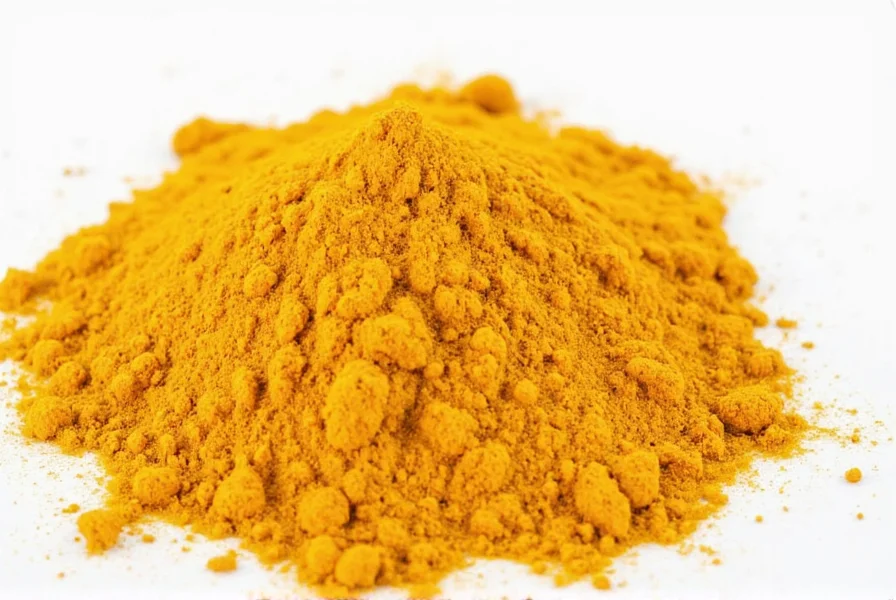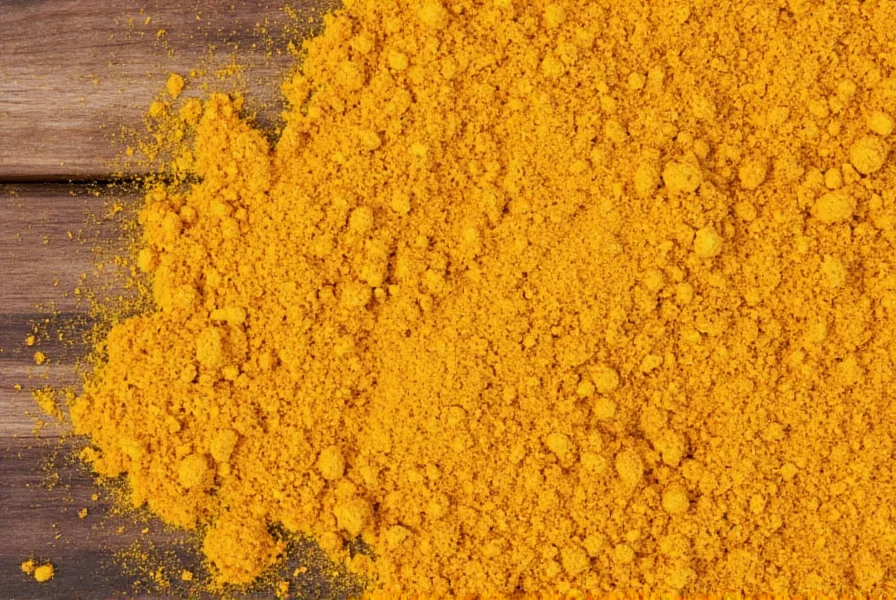For decades, turmeric has been celebrated in traditional medicine systems for its potential health benefits. The golden spice, commonly used in South Asian cuisine, contains curcumin—a bioactive compound that has captured scientific interest for its possible role in cancer prevention and treatment. Understanding the actual relationship between turmeric and cancer requires examining current research while distinguishing between laboratory findings and proven human applications.
The Science Behind Turmeric and Cancer
Curcumin, turmeric's primary active component, exhibits several biological properties relevant to cancer pathways. In laboratory settings, curcumin demonstrates anti-inflammatory, antioxidant, and anti-proliferative effects. These properties may influence multiple molecular targets involved in cancer development and progression.
Research indicates curcumin can potentially:
- Inhibit tumor cell proliferation
- Reduce inflammation that may contribute to cancer development
- Induce apoptosis (programmed cell death) in cancer cells
- Suppress angiogenesis (formation of new blood vessels that feed tumors)
- Enhance the effectiveness of certain chemotherapy drugs
However, these effects have primarily been observed in test tube and animal studies. The leap from laboratory findings to proven human cancer treatment involves significant challenges, particularly regarding bioavailability and effective dosing.
What Human Research Actually Shows
While preliminary research is promising, human clinical trials on turmeric and cancer remain limited in scope and scale. Most studies have focused on curcumin as a complementary approach rather than a standalone treatment.
| Study Type | Key Findings | Limitations |
|---|---|---|
| Phase I Clinical Trials | Curcumin appears safe at certain doses; some evidence of biological activity in cancer patients | Small sample sizes; not designed to measure effectiveness |
| Observational Studies | Populations with high turmeric consumption show lower cancer rates in some regions | Cannot establish causation; confounding factors likely |
| Combination Therapy Studies | Potential to enhance effectiveness of certain chemotherapies; may reduce treatment side effects | Limited to specific cancer types; requires more research |
| Prevention Studies | Insufficient evidence for turmeric as a cancer prevention strategy in humans | Most prevention data comes from laboratory research |
A 2022 systematic review published in Cancer Medicine analyzed 48 clinical trials involving curcumin and cancer. The review concluded that while curcumin shows potential as an adjunct therapy, evidence remains insufficient to recommend it as a standard cancer treatment. Most studies suffered from small sample sizes, short durations, and methodological limitations.
Critical Considerations for Cancer Patients
Several important factors must be considered when evaluating turmeric's potential role in cancer care:
Bioavailability Challenges
Curcumin has notoriously poor bioavailability—meaning the body struggles to absorb and utilize it effectively. Standard turmeric contains only about 3% curcumin by weight, and even purified curcumin supplements face absorption challenges. Many studies use specialized formulations to improve bioavailability, which aren't widely available to consumers.
Supplement vs. Dietary Turmeric
There's a significant difference between consuming turmeric as a spice in food versus taking concentrated curcumin supplements. Dietary turmeric is generally safe for cancer patients, but high-dose supplements may interact with treatments. One teaspoon of turmeric contains approximately 200mg of curcumin, while supplements often provide 500-2,000mg per dose.
Potential Treatment Interactions
Curcumin may interact with certain cancer treatments. Research suggests it could potentially interfere with some chemotherapy drugs by affecting how the body metabolizes medications. Cancer patients should never add turmeric supplements to their regimen without consulting their oncology team.

Current Medical Consensus
Major cancer organizations maintain cautious positions on turmeric and cancer:
- The American Cancer Society states: "Available scientific evidence does not support claims that turmeric or curcumin can prevent or treat cancer in humans."
- The National Cancer Institute notes: "Although laboratory and animal studies show curcumin affects cancer cells, these results have not been consistently replicated in human clinical trials."
- The Memorial Sloan Kettering Cancer Center advises cancer patients to discuss turmeric supplement use with their healthcare providers due to potential interactions.
Medical professionals generally agree that while turmeric as a food seasoning is safe, curcumin should not replace evidence-based cancer treatments. Some oncologists may approve its use as a complementary approach under medical supervision, particularly for managing treatment side effects.
Practical Guidance for Those Concerned About Cancer
Based on current evidence, here's what you should know about turmeric and cancer:
- As a food ingredient: Turmeric is safe to include in your diet at culinary doses. Adding turmeric to meals with black pepper (which contains piperine) may enhance curcumin absorption.
- For prevention: No evidence supports using turmeric supplements specifically for cancer prevention. Focus on proven prevention strategies like maintaining healthy weight, avoiding tobacco, and regular screenings.
- During cancer treatment: Never use turmeric supplements as an alternative to conventional treatment. Discuss any complementary approaches with your oncology team first.
- Evaluating claims: Be skeptical of websites claiming turmeric "cures" cancer or making dramatic promises about its effectiveness. These often misrepresent preliminary research.
Conclusion
The relationship between turmeric and cancer represents an active area of scientific investigation. While laboratory research shows intriguing potential for curcumin's anti-cancer properties, human evidence remains preliminary. Current research suggests turmeric may have value as a complementary approach under medical supervision, but it should never replace conventional cancer treatments. As research continues, patients should rely on evidence-based treatments while discussing any complementary approaches with their healthcare providers.
Frequently Asked Questions
Can turmeric prevent cancer?
Current scientific evidence does not support turmeric as an effective cancer prevention strategy in humans. While population studies in regions with high turmeric consumption show lower cancer rates, these observations don't prove causation. Many factors beyond turmeric consumption likely contribute to these differences. Proven cancer prevention strategies include avoiding tobacco, maintaining healthy weight, limiting alcohol, and getting recommended screenings.
Is it safe to take turmeric supplements during chemotherapy?
Turmeric supplements may interact with certain chemotherapy drugs, potentially reducing their effectiveness or increasing side effects. Curcumin can affect how the body metabolizes medications. Cancer patients should never take turmeric supplements during chemotherapy without explicit approval from their oncology team. Dietary turmeric used as a spice in normal food amounts is generally considered safe, but supplements require medical supervision.
How much curcumin is needed to have potential anti-cancer effects?
Research has not established a definitive effective dose of curcumin for cancer prevention or treatment in humans. Most clinical trials use doses ranging from 0.5 to 8 grams daily, but results have been inconsistent. The bioavailability challenge means that even high doses may not deliver sufficient curcumin to target tissues. Standard turmeric contains only about 3% curcumin, so achieving therapeutic levels through dietary turmeric alone is unlikely. Always consult with a healthcare provider before taking high-dose curcumin supplements.
Does turmeric help with cancer treatment side effects?
Some research suggests turmeric may help manage certain cancer treatment side effects, particularly inflammation-related issues. Studies have examined curcumin's potential to reduce radiation dermatitis, oral mucositis, and chemotherapy-induced nausea. However, evidence remains limited, and more rigorous studies are needed. If considering turmeric for managing treatment side effects, discuss this with your oncology team first to ensure it won't interfere with your treatment regimen.











 浙公网安备
33010002000092号
浙公网安备
33010002000092号 浙B2-20120091-4
浙B2-20120091-4